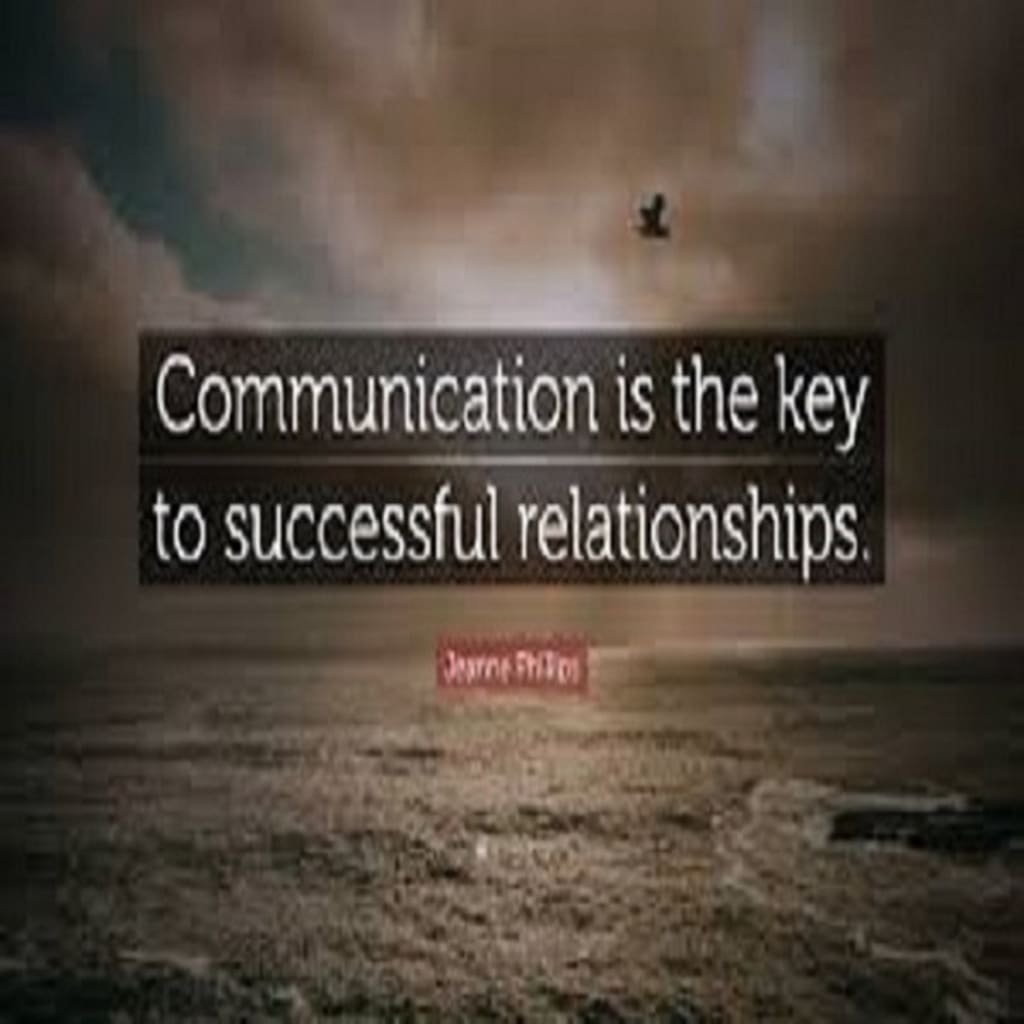Communication is Key in Relationships
communication stands as the golden thread

Start writing.In the intricate tapestry of human relationships, communication stands as the golden thread that weaves individuals together, fostering understanding, empathy, and connection. Whether in romantic partnerships, starting of eroticastory, familial bonds, friendships, or professional interactions, the ability to convey thoughts, feelings, and intentions effectively is fundamental to building and maintaining healthy relationships. Communication is not merely about exchanging information; it is about comprehending the emotions and intentions behind the information. This nuanced understanding is what enables relationships to flourish.
Effective communication is the cornerstone of any successful relationship. It involves both speaking and listening, expressing oneself clearly and understanding the other person’s perspective. In romantic relationships, for example, partners must navigate a myriad of emotions and experiences together. Open and honest communication allows partners to express their needs, desires, and concerns without fear of judgment or retaliation. It is through this transparent exchange that trust is built, misunderstandings are minimized, and a deeper emotional connection is forged. When both parties feel heard and valued, the relationship is more likely to withstand the inevitable challenges that arise.
Listening is as crucial as speaking in effective communication. Active listening goes beyond merely hearing words; it involves paying full attention, acknowledging the speaker's message, and responding thoughtfully. In family dynamics, parents who actively listen to their children provide a safe space for them to express their thoughts and emotions. This not only strengthens the parent-child bond but also fosters a sense of security and self-worth in the child. Similarly, in friendships, being an attentive listener demonstrates empathy and respect, reinforcing the mutual trust and support that underpin a lasting friendship.
Nonverbal communication also plays a significant role in relationships. Body language, facial expressions, and tone of voice can convey emotions and attitudes that words alone may not fully capture. For instance, a comforting hug or a warm smile can express affection and reassurance more powerfully than words. In professional settings, maintaining eye contact, nodding in agreement, and using an open posture can enhance communication by signaling attentiveness and engagement. Being mindful of these nonverbal cues helps to ensure that the message being communicated is received as intended.
Conflict is an inevitable part of any relationship, but how it is managed can make a significant difference. Effective communication during conflicts involves expressing feelings and concerns without resorting to blame or criticism. Using “I” statements, such as “I feel hurt when…” instead of “You always…”, can help to convey emotions without sounding accusatory. This approach encourages constructive dialogue and allows both parties to address the issue at hand rather than escalating the conflict. Additionally, being willing to listen to the other person’s perspective and finding common ground can lead to mutually satisfying resolutions.
Emotional intelligence is closely tied to effective communication. It involves being aware of one’s own emotions, understanding the emotions of others, and managing emotions constructively. In relationships, individuals with high emotional intelligence are better equipped to navigate the complexities of human interactions. They are more likely to communicate empathetically, resolve conflicts amicably, and build stronger, more resilient relationships. Developing emotional intelligence requires self-reflection, empathy, and a commitment to personal growth.
In the digital age, communication has taken on new forms, with social media, texting, and video calls becoming integral to how we connect with others. While these technologies offer convenience and immediacy, they also present challenges. The lack of face-to-face interaction can lead to misunderstandings, as nonverbal cues are often missing. To mitigate these challenges, it is essential to be mindful of the tone and clarity of digital communications. Additionally, making an effort to have in-person or voice conversations whenever possible can help to strengthen the relational bond.
Building and maintaining trust is another critical aspect of effective communication. Trust is the foundation upon which all relationships are built, and it is established through consistent, honest, and transparent communication. When individuals communicate openly and follow through on their commitments, they demonstrate reliability and integrity. Over time, this builds a reservoir of trust that can help to sustain the relationship during difficult times. Conversely, a lack of communication or dishonesty can erode trust and damage the relationship.
Empathy, the ability to understand and share the feelings of another, is a powerful component of effective communication. Empathetic communication involves not only understanding the words being spoken but also appreciating the emotions behind them. In romantic relationships, empathy allows partners to support each other through life’s ups and downs, fostering a deep sense of intimacy and connection. In professional settings, empathetic communication can enhance teamwork, collaboration, and overall job satisfaction.
Cultural differences can also impact communication in relationships. Being aware of and respectful toward these differences is crucial for effective communication. This involves understanding that cultural backgrounds can influence communication styles, body language, and perceptions of social norms. In diverse relationships, taking the time to learn about each other’s cultural context can prevent misunderstandings and promote mutual respect and appreciation.
In conclusion, communication is the lifeblood of relationships and helps both to make eroticatale. It is the means by which we share our innermost thoughts and feelings, build trust, resolve conflicts, and create meaningful connections with others. By honing our communication skills, practicing active listening, being mindful of nonverbal cues, and cultivating empathy, we can nurture and sustain healthy, fulfilling relationships.
In a world that is increasingly interconnected yet often disconnected on a personal level, the ability to communicate effectively is more important than ever. Investing in this skill is an investment in the quality and longevity of our relationships, enriching our lives and the lives of those we care about.
About the Creator
home tech
https://hometechserve.com/washing-machine-repair-in-dubai/
Enjoyed the story? Support the Creator.
Subscribe for free to receive all their stories in your feed. You could also pledge your support or give them a one-off tip, letting them know you appreciate their work.





Comments
There are no comments for this story
Be the first to respond and start the conversation.